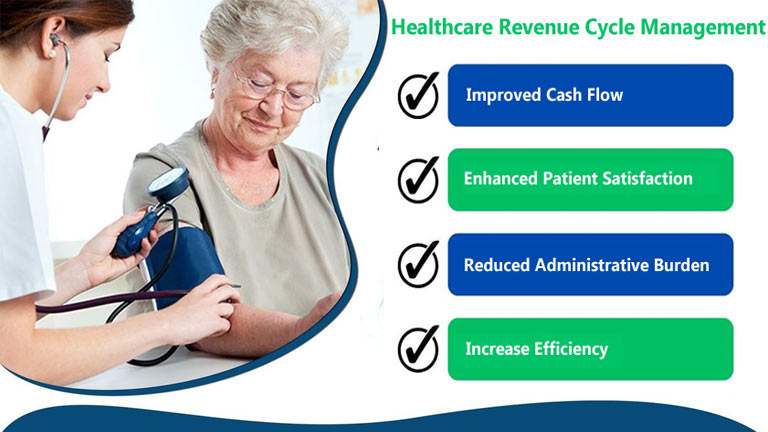The healthcare sector is an intricate network of services, providers, insurers, and patients, all of whom are dependent on an efficient, well-managed financial process. At the heart of this is Healthcare Revenue Cycle Management (RCM). This is a financial process used by healthcare providers to manage the administrative and clinical functions associated with claims processing, payment, and revenue generation.
In this blog, we will discuss the numerous advantages of Healthcare Revenue Cycle Management, and how outsourcing RCM can be an effective strategy for healthcare institutions.
Streamlined Revenue Management
Healthcare Revenue Cycle Management simplifies the financial process. It starts with the scheduling of patient appointments and continues through to the payment of the final bill. By automating steps like patient enrollment, insurance eligibility verification, and claims submission, RCM streamlines the revenue management process, making it more effective and efficient. It supports better financial decision-making and planning by providing data-driven insights and analytics on key performance indicators, such as revenue, cost, and profitability.
Improved Cash Flow
With a well-managed RCM system, healthcare providers can significantly improve their cash flow. Reduced denials lead to quicker reimbursements and quicker claims processing. In addition, improved coding accuracy and comprehensive charge capture ensure all services rendered are billed accurately and promptly, reducing the chances of underpayment or missed charges.
Enhanced Patient Satisfaction
RCM not only benefits healthcare providers but also enhances patient satisfaction. By ensuring that patient financial responsibility is communicated from the outset, patients are less likely to encounter unexpected costs, leading to a positive patient experience.
Reduced Administrative Burden
With RCM, administrative tasks such as billing, claims submissions and follow-ups with insurance companies are efficiently managed, reducing the burden on healthcare providers. This allows them to focus on their core competency – providing quality patient care.
Quality
It enables healthcare providers to focus more on their core competency of delivering quality care to their patients, rather than worrying about the financial aspects of their business.
Outsource RCM for Increased Efficiency
While there are numerous advantages to implementing a robust RCM system in-house, many healthcare providers are choosing to outsource RCM. This is due to the challenges associated with managing a sophisticated RCM system, which includes staying abreast with the ever-changing regulations, insurance policy adjustments, and technology updates.
Outsourcing RCM to dedicated service providers can be beneficial. These providers have the expertise and technology to handle the intricacies of RCM, ensuring compliance, accuracy, and timeliness. They also have the resources to deal with any issues that may arise, reducing the burden on the healthcare provider.
Outsourcing RCM can also be cost-effective. Instead of investing in expensive RCM software and training staff to manage it, healthcare providers can pay a fixed fee for an outsourced service.
Conclusion
Healthcare Revenue Cycle Management plays a crucial role in the financial health and sustainability of healthcare providers. While managing RCM in-house has its benefits, outsourcing RCM can offer increased efficiency, cost savings, and the ability to focus more on patient care. With the right RCM partner, healthcare providers can enjoy a smoother, more efficient financial process.




